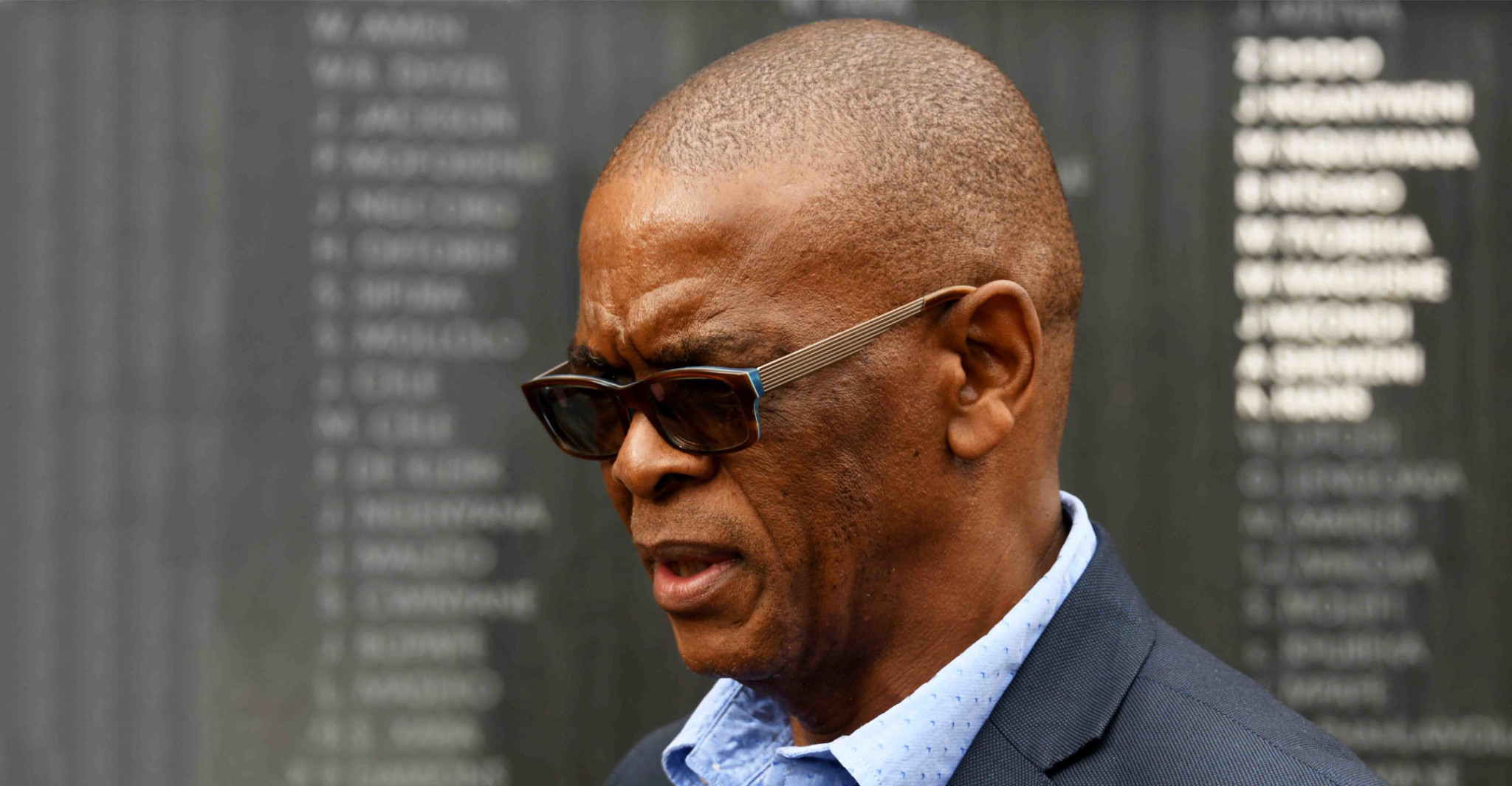News
Is South Africa Descending into Failure?
There is little disguising the trouble that South Africa is in, but is it on the cusp of becoming a failed state?

There are the anecdotal measures. The cattle grazing on the N2 at the edge of the runway of Cape Town International Airport, or the now regular presence of sheep in the roads linking the Strand with Gordon's Bay.
Other communities will have their own, yet similar indicators. However, such measures mostly attempt to extrapolate the anecdotal and topical to the analytical and strategic, and are usually based more on personal prejudice than cold-blooded rationality. The presence of potholes, the functioning of traffic lights, the state of the sidewalks, and even the attitude of public servants are equally analytically fraught.
The term 'failed' states, first apparently used by Madeleine Albright to describe Somalia in August 1993, was followed by the development of the expressions 'failing' and then 'fragile' states. Such terminology is, the Guardian has concluded, rather 'like Jabba the Hutt after a night at an all-you-can-eat pizzeria: broad and ill-defined'.
The very notion of a 'failed' state itself has been rejected by some since it 'implies no degree of success or failure, no sense of decline or progress … a binary division between those countries that are salvageable and those beyond redemption. It is a word,' says the Guardian, 'reserved for marriages and exams.'
There appears to be no single reason or a tipping point at which a state becomes officially 'failed', an imaginary dividing line between success or normality and failure. States should rather be viewed on a spectrum of failure.
And there is a certain degree of schizophrenia present, and not a little incongruity.
Countries that work for some, at least for the relatively well-heeled visitor, can work against the locals. Think Kenya. There are those that significantly and continuously underperform, lurching from crisis to crisis, a roller coaster of political and economic collapse, but do not explode into violence and become the focus of international aid groups, one external metric of failure. Think Argentina.
States can contain both elements of perfect functionality and failure for different communities — Sandton versus nearly Alexandria, or Bishopscourt against Bonteheuwel; indeed, some constituencies prosper under conditions of failure. And failure can occur in terms of extreme violence and the collapse of the state through a continuum, including the failure to deliver basic common goods to democratic failure through authoritarianism.
To try and make sense of the confusion, economic growth and per capita income figures are often an expedient shorthand to identify poor and weak countries based both on their trajectory and absolute levels. Such empiricism helps to steer qualitative insights, with all their risks of personal prejudices and other frailties.
Here there is little disguising the trouble that South Africa is in, trouble that began well before the pandemic. This has been simply accelerated by Covid. Consequently the country is on the cusp of an economic breakdown: fiscally (with a projected 15-20% deficit, and 80% debt/GDP ratio), socially (with perhaps another three million unemployed, bringing the number of jobless to over half the population), and in growth terms (falling from its paltry record of 1.4% for the past decade, to -8% in 2020).
Another obvious measure is the ability of the state to control the means of organised violence. Again, South Africa is not doing that well. Its murder rate, at 36 per 100,000 of the population, or 58 per day, is five times the international average, the number climbing now to the highest level in more than a decade.
Qualitative aspects — the attitudes, policies and situations that tell the history, explain the present and point to the likely future of fragile states — help to provide insights beyond the statistical exoskeleton in trying to explain these situations. The abiding commonality for states on this spectrum of failure is that they fail their citizens while usually enriching their elites.
The Fragile States Index published by the Fund for Peace uses a mix of quantitative and qualitative factors to rank states according to their vulnerability, in three areas: social (including refugees and population pressures), economic (corruption, inequality, performance) and politics (including the performance of public services, elite factionalisation, and the state of the justice system). South Africa sits in the category of 'elevated warning', ranking 85th out of 178 states and territories measured, in the company of the likes of Thailand, Bosnia and Herzegovina, and Georgia. SA ranks 13th in the list of 'most worsened' countries between 2009-19, with Libya at the top of the list.
What creates a pathology of failure?
Ace Magashule recently epitomised an exclusive, extractive economy, in noting, apparently without a hint of concern: 'Tell me of one leader of the ANC, who has not done business with government... you are looking at [just] government; [other] people are working with banks,' said the party's Secretary-General. He insisted that there was no law preventing family members of politicians from landing state contracts.
Leadership might get away with this 'we did not struggle to be poor' excuse partly because their electorate is too busy surviving to care; or supports them actively or through their apathy; or democracy is weak or immature, shaped more by identity than issues, those divisions deliberately fanned by a government intent on staying in power. Yet ultimately the corrosive effect of bad governance on growth begets division, violence and further decay as the cake shrinks.
Perhaps more importantly, what do we know about recovery from failure? Five things stand out.
Identify and Own the Problem: This is a critical first step to ownership of the solution. While the notion of being such a failure implies a certain apathy and helplessness, to the contrary it is precisely local ownership of this 'state of being' and consequent action that will ultimately ensure state recovery and success.
Salvation Will Not Come from Outside: Despite the common assertion that the conditionalities imposed by external actors, such as the IMF, will force the ANC to embark on a reform path, the history shows that more often than not, this quickly rebounds absent a domestic political constituency.

Recovery Takes Time: the period of recovery is usually as long as the period of decline, if not longer.
Don't Bother with the Deck Chairs: Local level reforms are no substitute for the necessary bigger, strategic actions necessary. South Africa is not going to recover through infrastructure spending without improved labour productivity, and reduced debt.
It All Depends on Getting the Politics Right: For good reason, the empirical record shows that states perform better with democracy, given that governance institutions and the rule of law are stronger, that they protect people and business alike. Yet democratic failure does not have to be as obvious as the demagogue caricature of a Robert Mugabe or Venezuela's Hugo Chavez. It can happen even in societies recognised as shining examples of post-conflict transition, such as South Africa if the ruling party is intent, for reasons of self-interest, to undercut key institutions including parliament, the judiciary, and civil society.
To pull out of its current trajectory, South Africa will have to boldly address its low-growth policy failings and structural constraints. This will be tougher politically than economically. Or it can choose the familiar populist path of doubling-down on the state, of increased spending and of attempts to increase state 'capacity' for 'delivery'.
The reform path will be hard. It demands a frank and unflattering assessment of the growth and development record over the last quarter of a century of rule by the ANC and its allies and requires abandoning many of the economic policies which have attained sacred status in liberation mythology, and which conveniently serve elite interests. An alternative populist path will be politically easier, but it will end, as it commonly does, in economic catastrophe.
Some steel is required from those who want reform, on both sides of the political divide.
History shows that the route to reform lies through more competitive politics. It also reminds that a bumpy road lies ahead as the ANC attempts to strengthen its grip on power as the fear of losing it becomes more real.
Dr Mills heads the Brenthurst Foundation www.thebrenthurstfoundation.org and is the author, among other books, of Why States Recover and Democracy Works (Picador).
Picture: ANC Secretary General, Ace Magashule, GCIS


